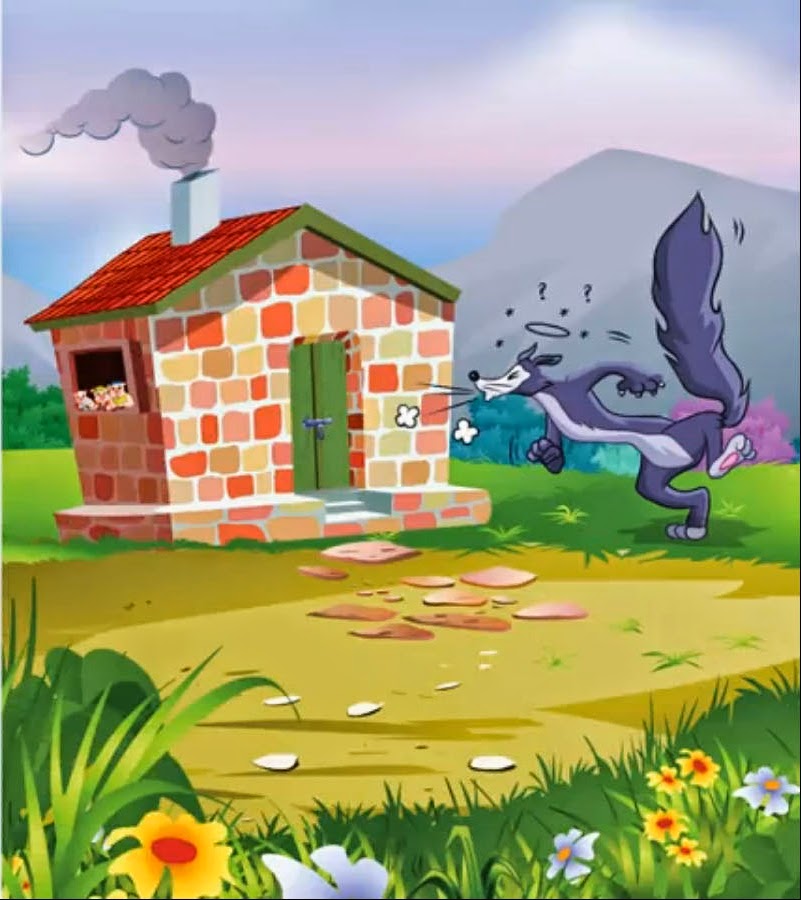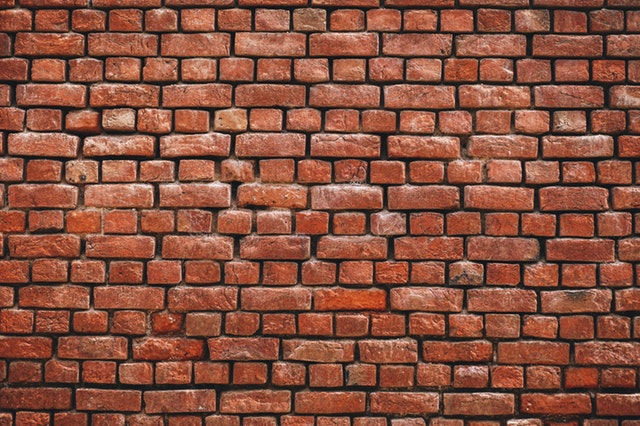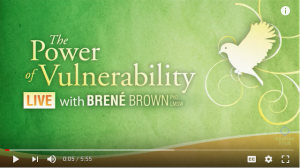 Donald Trump is not the only one these days calling on us to “build a wall“ — he is merely reflecting a deep current in our culture. Every child learns the fable of The Three Little Pigs. “I’ll huff and I’ll puff and I’ll blow your house down” says the Big Bad Wolf. The message is imprinted onto our collective psyche. The world out there is dangerous, and the stronger the walls we build to separate ourselves from it, the less likely we are to end up as meat. Stronger walls keep us safe.
Donald Trump is not the only one these days calling on us to “build a wall“ — he is merely reflecting a deep current in our culture. Every child learns the fable of The Three Little Pigs. “I’ll huff and I’ll puff and I’ll blow your house down” says the Big Bad Wolf. The message is imprinted onto our collective psyche. The world out there is dangerous, and the stronger the walls we build to separate ourselves from it, the less likely we are to end up as meat. Stronger walls keep us safe.
But, do they?
I don’t know anyone who has been eaten by wolves, but a lot of people nowadays experience an abiding sense of isolation. Most marriages end in divorce. Most of us would like to have deeper, more satisfying relationships with our partners, our friends, or our family members. Loneliness and alienation are the big bad wolves of modern life.
Our nervous system and cultural roots evolved at a time when being eaten by gnarly beasts was an actual thing. The same instincts that kept our ancestors alive can now trigger fears that have nothing to do with our physical safety: fears of otherness, judgement, or change.
Wall-building remains our default solution in common social situations. When an acquaintance or loved one says or does something insensitive, we are practiced at withdrawing or putting up a protective facade. When we are sad, it is considered normal to stay safely ensconced at home, rather risk being a wet blanket at the party. As the American Dream has brought about an increase in home ownership, it has also increased the distance of extended family and neighbors. Examples of the excesses of our wall-building culture abound: economic and racial segregation, xenophobia, warfare, internalized repression, a polarized electorate, …

Good boundaries are essential, but they are useless unless there is something to connect with on the other side that brings us alive. Sometimes, when we think we are building walls in response to our fears, our fears may be in response to the walls we build, and the isolation they bring. Building more walls in response to these fears is like throwing gasoline on the fire of our discontent, thinking it will put out the flames.
The ability to bridge walls through vulnerability has been popularized, recently, by Brené Brown and others, because our cultural bias against it leads to impoverished relationships.
“In our culture, we associate vulnerability with emotions we want to avoid such as fear, shame, and uncertainty. Yet we too often lose sight of the fact that vulnerability is also the birthplace of joy, belonging, creativity, authenticity, and love.”
– Dr. Brené Brown
 When we encounter other, we often default to building walls, when what is needed is the courage to take them down. It is so hard to admit to a loved one that our anger is just the fear of losing them. It can be hard to be the first one to say “I’m sorry”, or at times, “I love you.” “I’m fine” is our standard-issue armor.
When we encounter other, we often default to building walls, when what is needed is the courage to take them down. It is so hard to admit to a loved one that our anger is just the fear of losing them. It can be hard to be the first one to say “I’m sorry”, or at times, “I love you.” “I’m fine” is our standard-issue armor.
Our ancestors lived in close proximity with nature, with all its mysterious dangers and ephemeral beauty. The forest was teacher, shelter, food, and medicine. On an evolutionary scale, the world of four walls, into which we were born, is an invention of our recent past, and the true cost of separation from nature lies somewhere in our ancestral memory.
“when the Industrial Revolution came, there were 20 years when basically everyone in Manchester, England, was an alcoholic. Instead of having like coffee carts, they had gin carts that went up and down the streets. Because it was so hard to shift from being a farmer to sitting in a dark room for 12 hours every day doing what you were told. But we evolved, we culturally evolved to be able to handle a new world order.”
– Seth Godin
We are living amidst a massive transition in our relationship with nature. We are now the wolf, and the fragile ecosystems on which we depend are now the little pigs. The cost of not waking up to this reversal of fortunes is to deny our birthright of belonging in a world of incalculable beauty and diversity, and to impoverish our children by passing on a more barren planet.
“Our bodies have formed themselves in delicate reciprocity with the manifold textures, sounds, and shapes of an animate earth – our eyes have evolved in subtle interaction with other eyes, as our ears are attuned by their very structure to the howling of wolves and the honking of geese. To shut ourselves off from these other voices, to continue by our lifestyles to condemn these other sensibilities to the oblivion of extinction, is to rob our own senses of their integrity, and to rob our minds of their coherence.”
– David Abram
The specter of a possible wall along our southern border is a good reminder to recognize where we build walls in our own lives, acknowledge their cost, and examine the fears they represent. Recapturing our innate sense of interconnectedness, learning to offer and receive invitations to our greater belonging, and creating opportunities for vulnerability and intimacy are essential for our collective and individual well-being.
References
How to Have a Relationship with a Wild Animal
Brené Brown – Embracing Vulnerability
The Prelude (excerpt)
…
Magnificent the Morning was, a memorable pomp,
More glorious than I ever had beheld;
The Sea was laughing at a distance; all
The solid Mountains were as bright as clouds,
Grain-tinctured, drench’d in empyrean light;
And, in the meadows and the lower grounds,
Was all the sweetness of a common dawn,
Dews, vapours, and the melody of birds,
–Ah! need I say, dear Friend, that to the brim
My heart was full; I made no vows, but vows
Were then made for me; bond unknown to me
Was given, that I should be, else sinning greatly,
A dedicated Spirit. On I walk’d
In blessedness which even yet remains.
…
– William Wordsworth





Leave a Reply